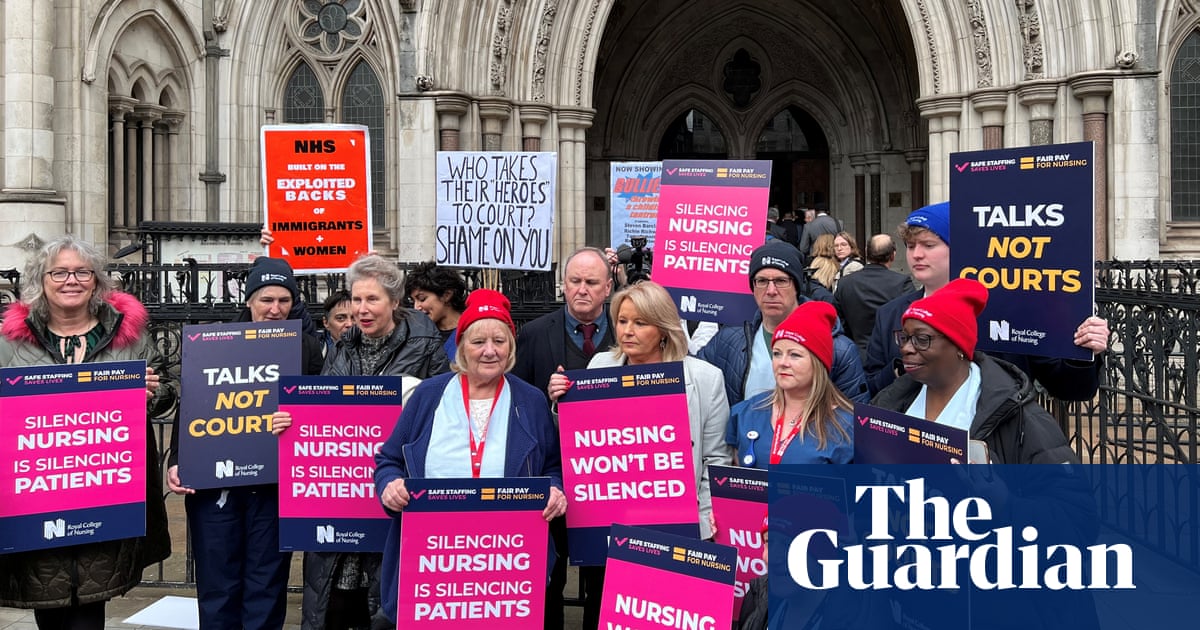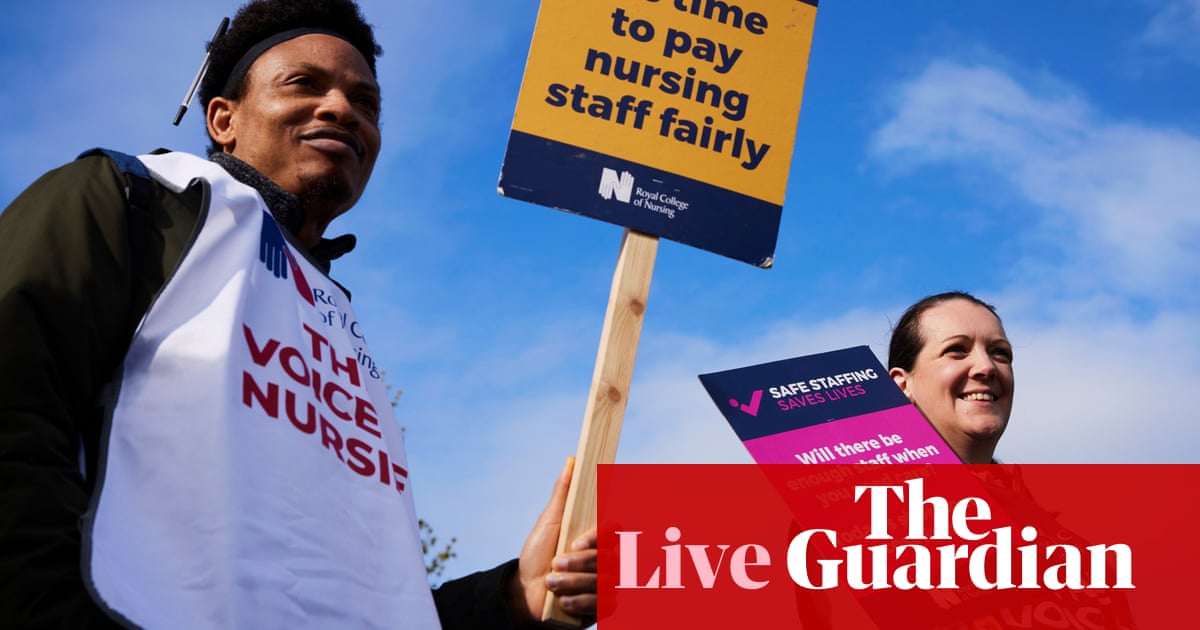
An NHS leader has urged the Royal College of Nursing to let striking nurses leave picket lines and go back to work in their hospital if emergencies occur during their strike this weekend.
Matthew Taylor made the appeal as the NHS braced itself for renewed disruption to services as a result of the first strike by nurses since they rejected the government’s improved pay offer.
NHS bosses are warning that patient safety could be put at risk while nurses in England stage a 28-hour stoppage from 8pm on Sunday evening to midnight on Monday evening.
The RCN’s plan to strike until 8pm on Tuesday was thwarted when the government secured a high court order on Thursday that any refusal to work that day would be illegal, as the union’s strike mandate expires at midnight the day before.
The RCN has decided to maximise the disruption its action causes to the NHS by not providing – for the first time since it began striking last December – any exemptions from the strike for “life and limb” care services, such as A&E, intensive care and cancer and maternity services.
Taylor, the chief executive of the NHS Confederation, said this weekend’s action would be “the most dramatic strikes the RCN has staged so far”.
He added: “Although the strike will be a day shorter than originally planned, disruption is still expected and so we hope that RCN representatives at local levels will allow their members to cross the picket line in the event of emergencies where life is at immediate risk.”
The RCN said it expected hospitals and other NHS care providers to review what services they offer and concentrate on delivering “life-preserving care” during this weekend’s stoppage. However, it has agreed to work with the NHS to deal with “extreme circumstances” on strike days.
NHS England said that it and the union “are seeking to agree mitigations on an organisation by organisation basis if there is a critical risk to patient safety”.
But, it added, the number of staff on duty in some places would be “exceptionally low, lower than on previous strike days”.
Mat Shaw, the chief executive of Great Ormond Street children’s hospital, in London, said on Friday the safety of its young patients would be at risk during the walkout because there would be too few nurses on duty.
However, talks between the hospital and the RCN led to the union granting the hospital a series of “exemptions” which mean nurses will no longer strike in some of its most important areas of care, such as its wards looking after children with cancer or heart problems.
Sir Julian Hartley, the chief executive of the hospitals group NHS Providers, warned that some trusts “are struggling to find enough staff for specialist areas, including children’s services”.
Strikes since December by nurses, ambulance staff and other NHS personnel had already forced the health service to reschedule about 531,000 outpatient appointments and operations, he added.
The RCN plans to reballot its members in England to try to get a second legal mandate for a renewed campaign of strikes that it has warned could last until Christmas unless they get more money.
It is one of four health unions to reject the improved pay offer for 2022-23 and 2023-24 that the health secretary, Steve Barclay, offered all NHS staff except doctors and dentists last month.












